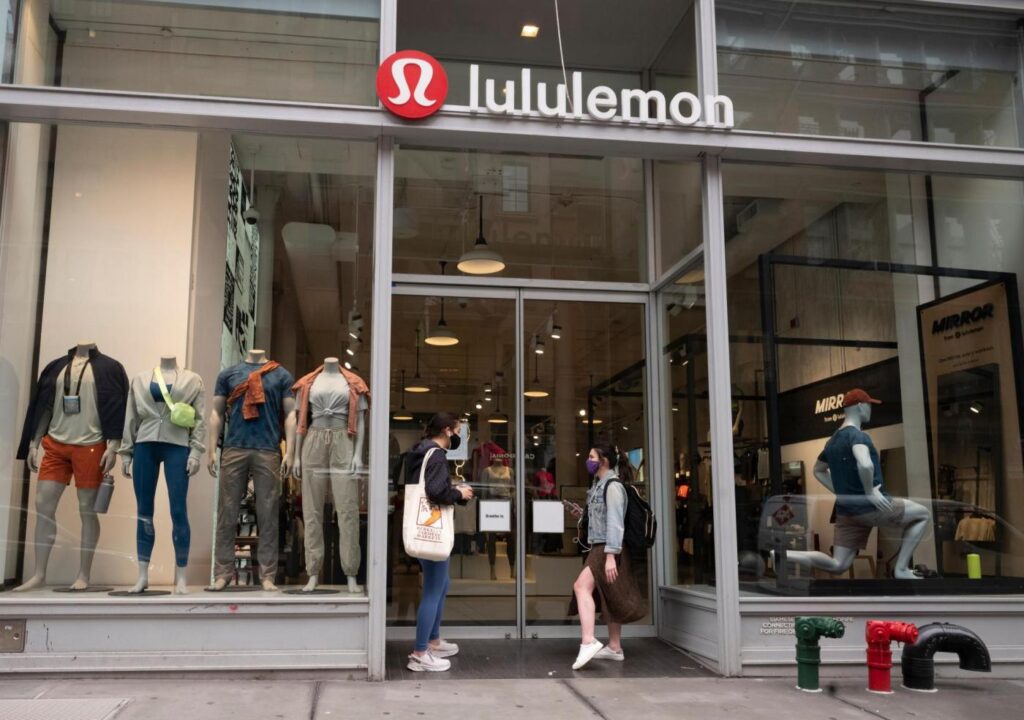
NEW YORK (AP) — The rise of fashion “dupes,” or affordable imitations of high-end apparel, is stirring legal waters, as evidenced by Lululemon’s recent lawsuit against Costco. Filed on Friday, the lawsuit accuses the wholesale giant of selling cheaper replicas of Lululemon’s popular athleisure wear, a move that underscores the growing tension between luxury brands and mass-market retailers.
Fashion dupes are not a new phenomenon in the retail industry. However, the advent of social media has propelled the culture of dupe shopping to unprecedented levels, with influencers guiding their followers to purchase these look-alikes. For instance, while Hermès’ $1,000 fuzzy slippers are out of reach for many, Target offers a similar version for just $15. Similarly, a Bottega Veneta hobo bag priced at $2,800 can be mimicked for $99 through the online retailer Quince, a favorite among fashion enthusiasts.
The Culture of Dupes
Lululemon’s lawsuit is not its first encounter with alleged knockoffs. The brand, known for its high-priced leggings and sporty jackets, claims that several companies have replicated its designs, often popularized online through hashtags such as “LululemonDupes” on platforms like TikTok.
Historically, companies have offered budget-friendly alternatives to expensive designer labels, often through generic or house brands. Unlike counterfeit products that illegally use trademarks or logos, “pure” dupes merely resemble certain features and are generally considered legitimate. These products can even increase awareness of the original items.
However, the growing frenzy for dupes indicates a shift in consumer behavior, with many shoppers desiring luxury aesthetics without the hefty price tag. Last year, Walmart created a stir by selling a leather bag resembling the coveted Hermès Birkin bag for just $78, a stark contrast to the original’s price, which ranges from $9,000 to hundreds of thousands of dollars. Influencers dubbed the leather bag a “wirkin,” sparking further interest in such products.
Legal Implications of Dupes
While popular among consumers, these look-alikes can frustrate the brands they mimic. Hermès Executive Chairman Axel Dumas expressed his displeasure over the “wirkin” bag, calling it “quite detestable” during a corporate earnings call. Yet, he acknowledged the consumer desire for the Birkin style, noting that the quality difference was apparent and that nobody mistook the dupe for an authentic Hermès product.
According to Alexandra Roberts, a professor of law and media at Northeastern University, the term “dupe” does not inherently indicate legality. The term has been used to describe traditional counterfeits, but dupes can enter a legal gray area, particularly concerning copyright and trademark infringement. This is especially true if a dupe marketer makes false claims about the duplicate or the original product.
“With fashion, in particular, we’re going to get into some thorny questions,” Roberts explained. “That includes what intellectual property rights exist and how enforceable they are, and whether there is actual infringement or if a product is just positioning itself as a less expensive alternative.”
Trademark disputes often hinge on consumer confusion or patented product designs. In December, Benefit lost a lawsuit in California against E.l.f. over its $6 Lash ’N Roll mascara, which resembled Benefit’s $29 Roller Lash mascara. The judge’s decision was a “resounding win” for E.l.f., according to CEO Tarang Amin.
Lululemon’s Legal Battle with Costco
In its lawsuit, Lululemon argues that Costco has “unlawfully traded” on its reputation, suing as part of broader intellectual property enforcement against retailers opting to copy rather than compete. The complaint accuses Costco of duplicating several Lululemon products, including its Scuba hoodies, Define jackets, and ABC pants. Among the items cited is the Hi-Tec Men’s Scuba Full Zip, priced at $19.97 on Costco’s website.
Roberts expressed skepticism over some of Lululemon’s claims, particularly regarding design patents, which can be challenging to enforce. She highlighted Lululemon’s assertion of common law trade dress over a “triangle kind of shape in the crotch region” of the ABC pants, noting that functional elements are not protected under trademark law.
“My first reaction as a trademark expert is that looks pretty functional,” Roberts said. “Those pants look really basic.”
However, Roberts acknowledged that Lululemon has some plausible claims, particularly regarding consumer confusion. The lawsuit alleges that Costco uses manufacturers of popular branded products for its Kirkland label, potentially misleading customers into believing Kirkland products are made by the original suppliers.
Lululemon’s previous legal entanglement with Peloton in 2021 over “copycat products” ended with a five-year partnership, highlighting the complex dynamics between competition and collaboration in the fashion industry.
As the legal battle unfolds, the outcome could set a precedent for how brands and retailers navigate the increasingly blurred lines between inspiration and imitation in the fashion world.







